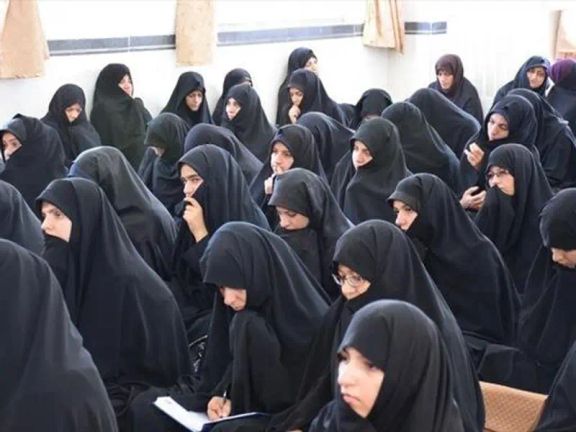Amid Secularization in Iran, Officials Push Islamic Academic Program

Iranian authorities have announced plans to establish an academic program that centers on the Islamic doctrine known as the "promotion of virtue and prevention of vice."

Iranian authorities have announced plans to establish an academic program that centers on the Islamic doctrine known as the "promotion of virtue and prevention of vice."
While the "promotion of virtue and prevention of vice" (PVPV) is a teaching rooted in the Quran and a guiding principle of behavior for Muslims, it also refers to a key Iranian regime institution tasked with determining and enforcing its strict Islamic behavioral norms in society.
This week, Mehran Samadi, the head of the PVPV Office, confirmed the launch of the new university program, which is intended for master's and doctoral levels of study.
Though he admitted that the PVPV’s work often focuses on the hijab and chastity, he emphasized that other areas also require attention and enforcement of Islamic principles.
The PVPV Office, also known as the Headquarters for Enjoining Right and Forbidding Evil, has been sanctioned by the EU over serious human rights violations.
In 2022, it was instrumental in setting new and stricter “morality” codes for women that are in clear violation of their human rights.
It also plays a central role in setting up the monitoring and often brutal sanctioning of women and men who do not respect these codes. The behavioral codes are subsequently brutally enforced by sanctioned entities, primarily the so-called morality police.
The news comes amid unprecedented discontent with the Islamic establishment. According to the most recent polling, the “Iranian populace has undergone a secularization and liberalization faster than any society in the Islamic world, despite having lived under the rule of Islamists for decades.”
Amidst that backdrop, the country’s Supreme Leader Ali Khamenei, initiated the “Noor Plan” this year – a campaign aimed at stepping-up the already strict enforcement of hijab laws, which are considered by clerics a part of PVPV.
Under the directive, the “morality police” have increased their physical presence in Tehran’s central districts, patrolling the streets more frequently along with an expansion of the deployment of vans and motorcycle units.
The increased activity of law enforcement, including plainclothes agents, has led to a spike in violent confrontations, especially involving women who resist wearing the mandatory hijab.
The UN has labeled the Iranian authorities' crackdown on the hijab and the overall oppression of women as “gender apartheid”, while Amnesty International has called it a “War on Women”.
This renewed crackdown occurs nearly two years after the death of 22-year-old Kurdish-Iranian woman Mahsa Jina Amini, who died in the custody of the "morality police" after sustaining severe head injuries allegedly for not wearing a "proper" hijab.
Amini's killing ignited the most substantial wave of anti-regime protests since the inception of the Islamic Republic in 1979.